Elderly Cats
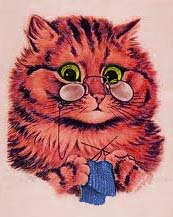
Just like people, cats get older. Some cats may become much friendlier and want to be with their owners more often, whereas others may become a little grumpy and resist being touched. Age can also make cats sleep more and go out less, meaning that they are likely to take less exercise. They might start to put on or lose weight and you may notice differences in their personality. However, any of these or other changes could be a sign of pain or illness so it is always worth checking with your vet.
Please do remember that older cats still need regular vaccinations, flea and worming treatments.
What will happen to my cat?
As your cat ages, you may notice that their coat loses its shine and a few white hairs appear. Your cats’  sleep patterns may change as generally older cats sleep more, although some may sleep less and wake at night, but this is perfectly normal. You may also notice your cats’ hearing and sight deteriorate and his memory may be affected.
sleep patterns may change as generally older cats sleep more, although some may sleep less and wake at night, but this is perfectly normal. You may also notice your cats’ hearing and sight deteriorate and his memory may be affected.
The natural aging process means that organs such as the heart, liver and the kidneys can deteriorate. Muscles and bones will become weaker and the immune system of an older puss does not work as well, so your cat may become less capable of fighting off infection.
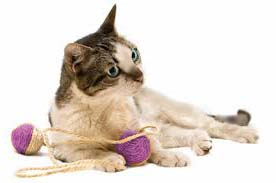 Ageing is never a reason to accept sickness and elderly cats can lead very happy, active lives. Constant improvements in veterinary care mean that there are a number of treatments that make it possible to help reduce the worst effects. Keeping your cat mentally active may help to keep them feeling young – perhaps hide some treats for them to find round the house, and try new toys, as older cats like to play too.
Ageing is never a reason to accept sickness and elderly cats can lead very happy, active lives. Constant improvements in veterinary care mean that there are a number of treatments that make it possible to help reduce the worst effects. Keeping your cat mentally active may help to keep them feeling young – perhaps hide some treats for them to find round the house, and try new toys, as older cats like to play too.
When will my cat start to get old?
In general, middle age is considered to start at seven or eight years of age and they are generally considered to be senior from 10 to 12 years old. Many vets provide senior or elderly care and it is advisable to take your cat along to these. Picking up early changes in your cat will enable early diagnosis and treatment and may considerably improve his quality of life.
As your cat ages, remember to provide an indoor litter tray, even if they normally go to the loo outside. Older cats often begin to feel vulnerable outside so providing an indoor tray will help to prevent any accidents or toileting problems, and upset for your cat.
Grooming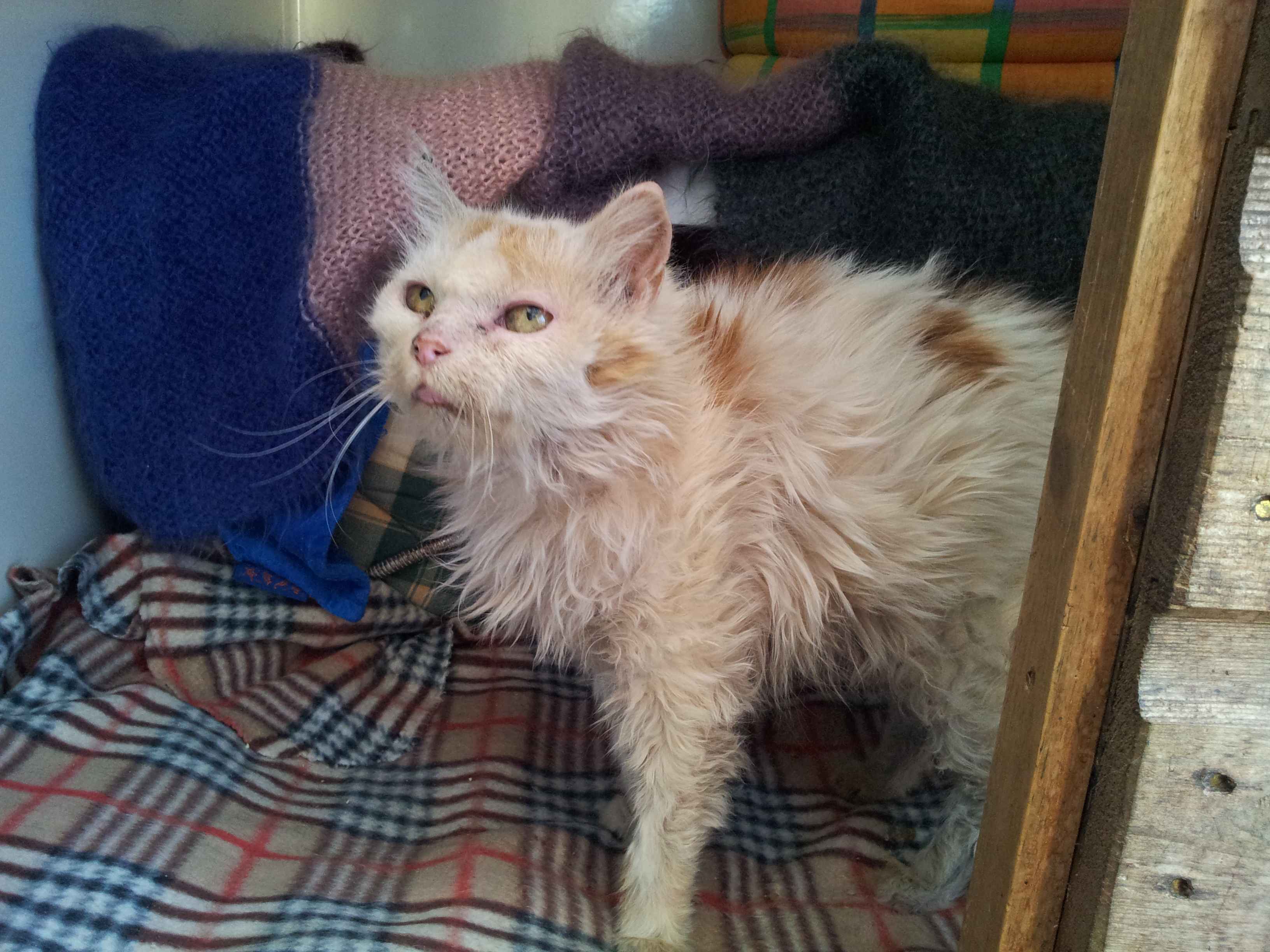
Keeping themself well groomed is extremely important for your cat. If they start to look scruffy or seems to be developing matted fur, it is best to take them to your vet for a check-up as this may indicate joint problems, gum or dental disease that are affecting their ability to groom.
Unless they are indoor cats, most younger cats don’t need claw clipping, but reduced activity in your elderly puss can result in claws overgrowing which means they can even grow into their foot pad. Check with your vet if you are unsure.
Food & Your Elderly Cat
It is common for older cats to develop medical conditions that cause them to lose weight, such as kidney and thyroid 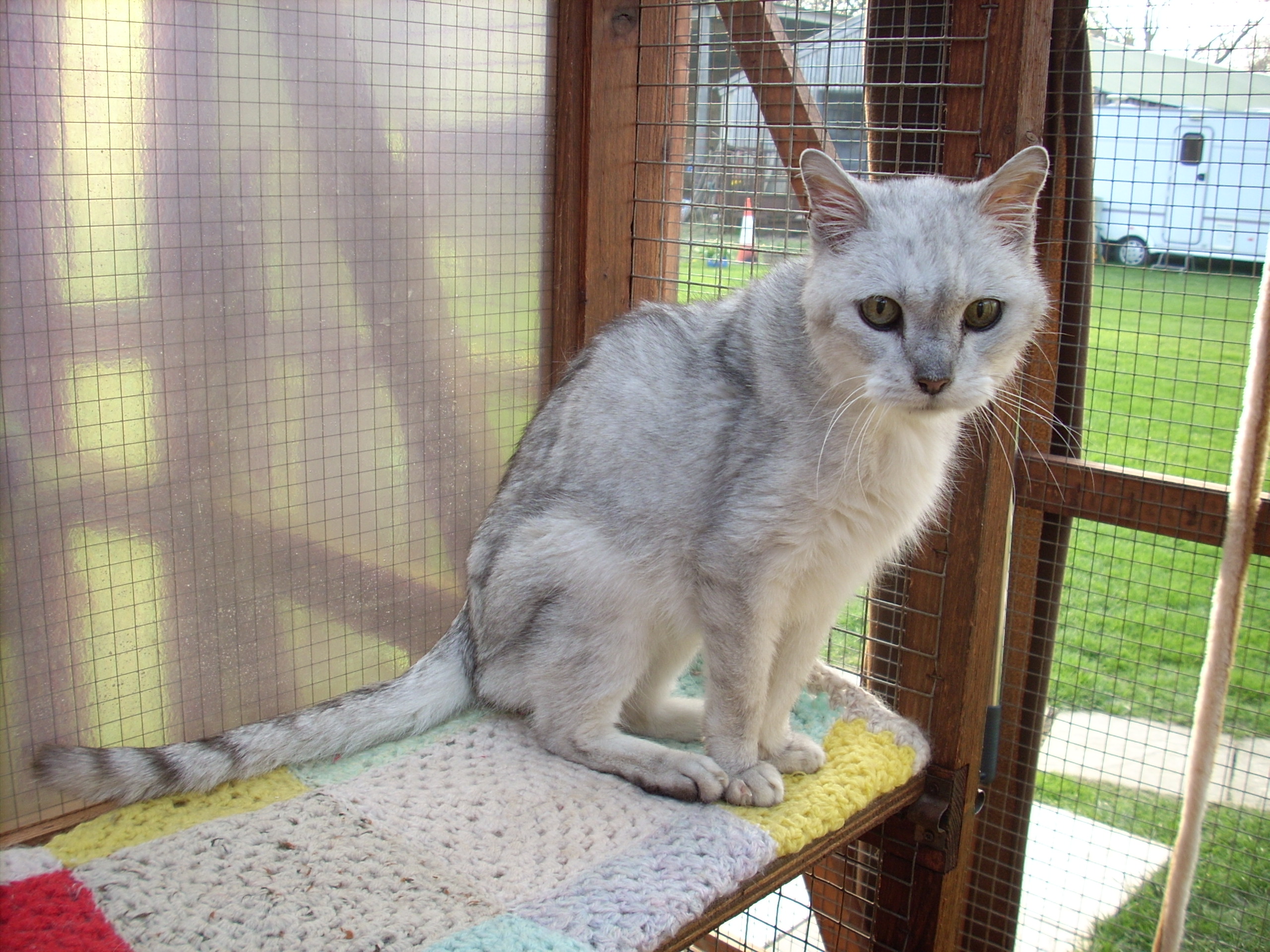 disease. If your cat is losing weight, it is important to consult your vet as soon as possible. Other cats develop a kind of middle-aged spread and it is essential that this is kept under control. Overweight cats are unlikely to live as long and they are prone to serious illnesses such as kidney disease, diabetes and arthritis.
disease. If your cat is losing weight, it is important to consult your vet as soon as possible. Other cats develop a kind of middle-aged spread and it is essential that this is kept under control. Overweight cats are unlikely to live as long and they are prone to serious illnesses such as kidney disease, diabetes and arthritis.
If you notice that your cat is losing weight, you should consult your vet in case there is a medical problem and discuss whether following a senior diet is advisable. Your vet may suggest a special food and, if your cats’ appetite is poor, it may help to warm the food slightly and to feed them a little and often.
The best way to tell if your cat is overweight is to examine them. If you can see a kind of hourglass waist when you look at them from above and can feel their ribs with light finger pressure, they are a healthy weight. If the answer to these questions is no, then reducing their food intake is advisable. But remember that any kind of crash dieting is very dangerous for cats, so make sure that a reduction in food is very gradual.
You may find it easier to follow one of the many senior diets that are available, as they are lower in calories and so reduce your cats’ likelihood of weight gain. Although protein restriction has not been proven to be beneficial for healthy cats, it is helpful for cats with kidney problems. If your cat has kidney disease ask your vet for advice on a suitable diet.
Reduced Movement & Joint Stiffness
Joint function deteriorates with age and conditions such as arthritis can develop. On taking your cat to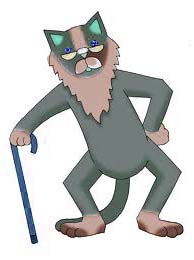 your vet, they will advise on any necessary treatment. There are fewer available drugs on the market for for the long-term treatment of arthritis in cats, but there are some that your vet can prescribe.
your vet, they will advise on any necessary treatment. There are fewer available drugs on the market for for the long-term treatment of arthritis in cats, but there are some that your vet can prescribe.
Some prescribed treatments suit some cats better than others, and there may be a period of trial before finding the right one for your cat. Inform your vet straight way if this medication puts your cat off his food, causes excessive thirst, diarrhoea or vomiting. You and your vet may find that some of the natural diet supplements may be helpful, or possibly acupuncture may be an option.
You may find that your cat only needs their medication on bad days once the arthritis has settled down. Your vet will advise you on the best way to manage this – absolutely never give your cat any of your own arthritis medicines or painkillers.
Increased Fluid Intake
If your cat has been drinking more than usual for a day or two, this should be investigated by taking them to your vet as there could be a number causes, such as kidney or liver disease, or your cat could be diabetic. Even if your cat has advanced kidney disease, in some cases there are still things that can be done to slow down the progress of the disease and make your cat more comfortable, so it is important to visit your vet.
Weight Loss & Diarrhoea
There can be several reasons for this, some of which are treatable and some of which, unfortunately, are not. One possible cause could be hyperthyroidism, which often responds well to treatment and it is important to seek the advice of your vet.
Bad Breath, Teeth & Gums
A great many owners find that cats who have suffered with bad teeth become much happier and have much healthier appetites after they have had dental work, so please consult your vet if you notice that your cat has bad breath. It is important to remember that apart from the pain they cause, having infected teeth and gums poses a serious health risk to your cat – they are a source of infection that can damage other vital organs. 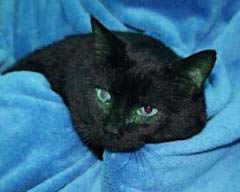
With any operation that requires an anaesthetic, there is always a degree of risk for any animal – as with humans. However, advanced techniques have made this very much safer and it important to remember that a significant proportion of anaesthetics are given to older cats as they tend to have problems that need surgery. Your vet may want to carry out blood tests first which will highlight any particular problems your cat may encounter.
Confusion & Strange Behaviour
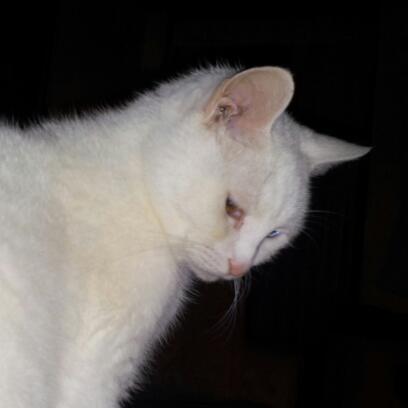
Some cats do suffer from brain deterioration, similar to people with Alzheimer’s disease which will affect their usual behaviour. If you notice that your elderly cat is behaving in a way that seems odd, such as staring at nothing, doesn’t seem to recognise you or just seems confused, it is worth consulting your vet.
Drugs which are similar to those used to treat Alzheimer’s have been used in cats – and for some cats they work very well. These symptoms are also produced by other medical disorders, so your vet needs to examine your cat to decide whether further tests are needed.
Love & Attention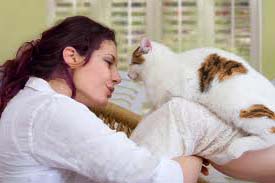
Just as important as any vet care your elderly cat may need, is your continued love and attention. Your cat has given you years of companionship, affection and fun and they deserve your understanding and support during their autumn years.
Although they may have changed a little, they are still your cat inside and giving them the extra care they need as they enter the final stage of their life will be rewarding for both of you.
© Copyright Rolvenden Cat Rescue | Registered Charity Number 1141631 | All rights reserved | 01580 241632
